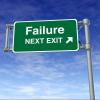Related Content
 |
Thinking of Changing Jobs? Consider These Points First There are certainly valid reasons to look for a new job. In fact, it may be that you can achieve some of your career goals only by switching jobs. But in considering the right and wrong reasons for changing jobs, it’s important not to see the current job as no good and some unknown future job as the “perfect solution.” |
|
 |
How to Earn Trust in the Workplace If you’re starting a new position, taking over a team, transferring to a new department, or simply doing your job every day, you can accomplish more and accomplish it faster if people trust you. There are several outside factors that influence whether people find you trustworthy, but here are some you can control. |
|
 |
What’s Your “Size” of Agile? There are approaches to agile that sound great on paper, but will they really be the best choice for your team in practice? Instead of standardizing on any form of agile, think about the results you want. Why not create the environment that works best for you? There's more than one way to do agile. |
|
 |
Managing the Turbulence of Organizational Change In times of major change, particularly organizational change, it's normal for people involved to experience turbulence, including anxiety, anger, or uncertainty. If you’re overseeing a change, how you communicate with those affected can significantly decrease—or increase—the duration and intensity of that turbulence. |
|
 |
Agile Testers Shouldn’t Be Enablers Testing has often been seen as the final stage of creating an application. Since we weren’t shifting testing left as much as we do today, a great deal of work was thrown on the testing team at the very end of an exhausting project cycle. But testers shouldn’t be seen as the last line of defense. |
|
 |
In Praise of Failure Failure is measured by expectations. If we aim to be perfect, or set the expectation that only perfection is acceptable, we risk losing opportunities to get valuable feedback. Creating an expectation of perfection can lead to stagnation, not success. Instead, view failure as a learning experience. |
|
 |
Manage Project Problems without Getting Trapped by Catastrophic Thinking It would be short-sighted for any project manager not to consider the potential risks in the project and not to evaluate and continue re-evaluating what can go wrong. But there's a difference between planning for risk and falling victim to catastrophic thinking—focusing on unlikely or irrational worst-case scenarios. |
|
 |
How Testers Can Create a Change in Mindset With all of the changes happening in the testing world and what is expected in order to succeed, one of the things that is needed is a change in mindset. Today’s testers need to be able to think outside traditional system requirements and instead focus on end user expectations and market acceptance. |





